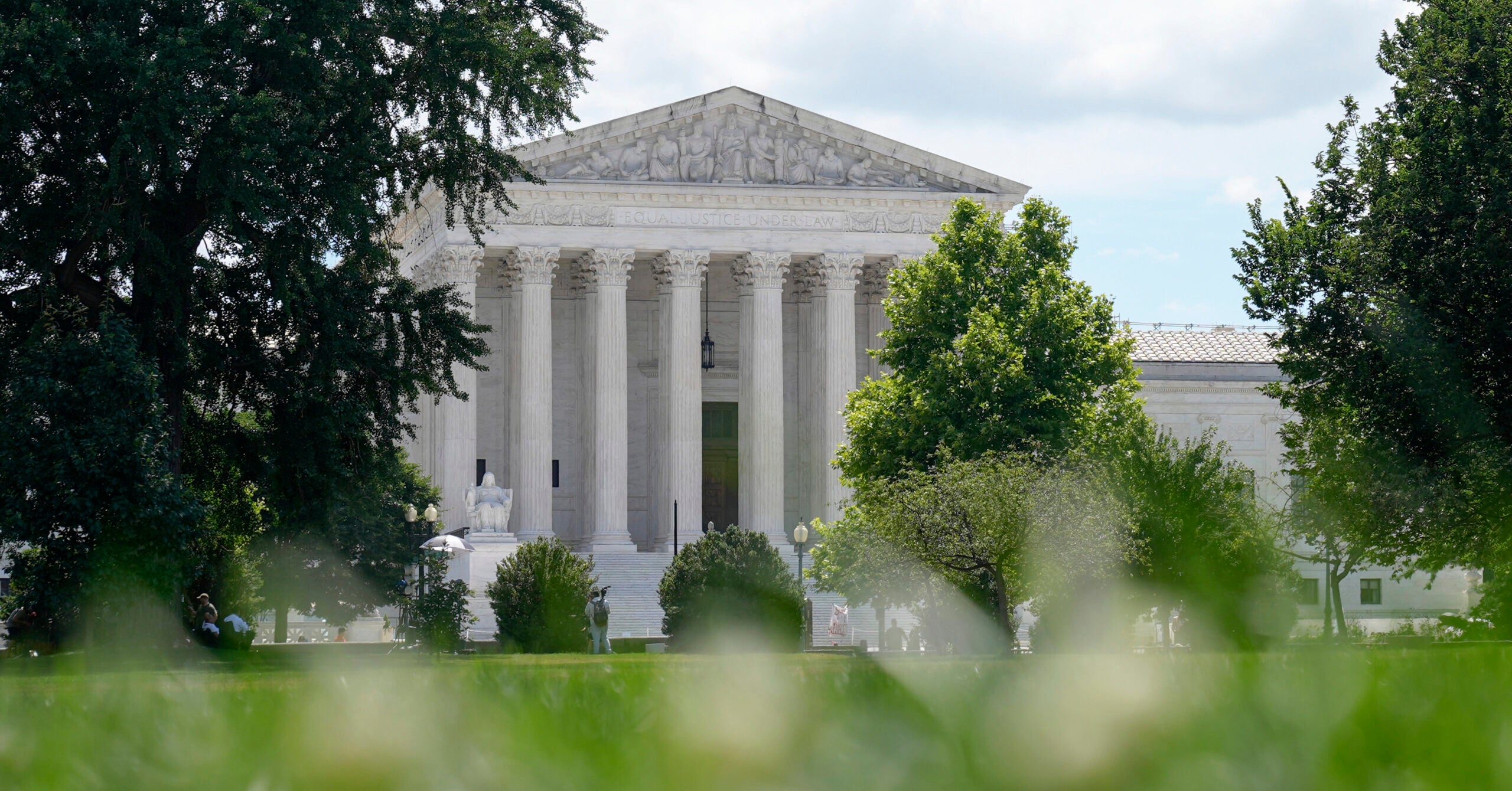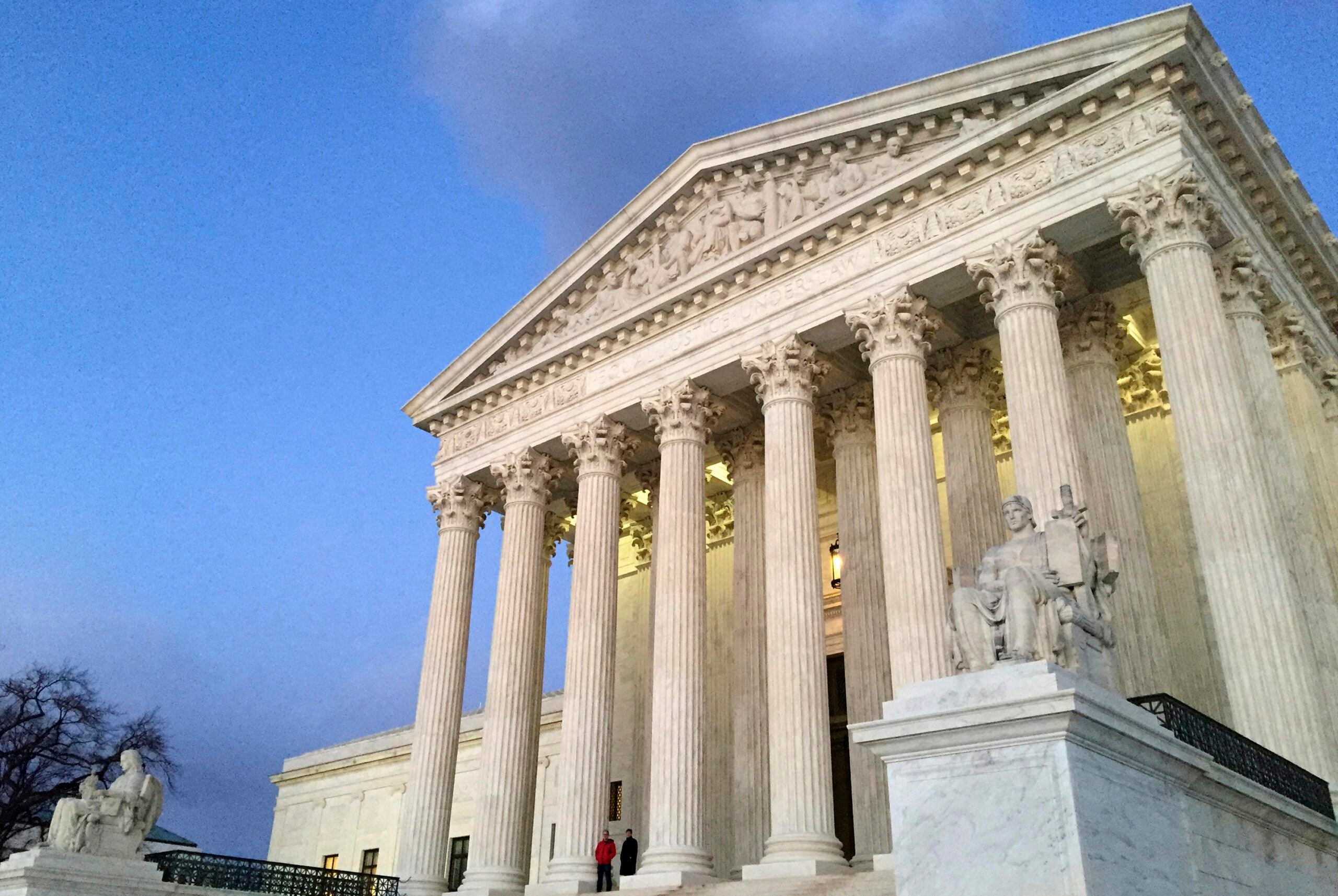The Supreme Court on Friday said it would take up a new religious rights case over whether a Catholic charitable organization must pay Wisconsin’s employment tax.
The justices will review a divided state Supreme Court ruling that refused to grant an exemption to the Catholic Charities Bureau, based in Superior, Wisconsin. The state court ruled that the work of Catholic Charities and four related organizations is primarily not religious, although it found that the motivation to help older, disabled and low-income people stems from Catholic teachings.
“Catholic Charities Bureau is on the front lines bringing love, healing, and hope to the most vulnerable members of our community,” said Bishop James Powers, of the Diocese of Superior, in a statement. “We pray the Court recognizes that this work of improving the human condition is our answer to Christ’s call to serve those in need.”
The case will likely be heard in the spring and decided by the end of June.
News with a little more humanity
WPR’s “Wisconsin Today” newsletter keeps you connected to the state you love without feeling overwhelmed. No paywall. No agenda. No corporate filter.
The Supreme Court in recent years has issued an unbroken string of decisions siding with churches and religious plaintiffs in disputes with states.
Lawyers for the Wisconsin groups argued to the court that the decision violates religious freedoms protected by the First Amendment. They also said the court should step in to resolve conflicting rulings by several top state courts on the same issue.
Attorneys with the Becket Fund for Religious Liberty say they’re confident the U.S. Supreme Court will reject the ruling.
“We’re hoping that the Supreme Court ultimately rules in favor of our client and recognizes that Catholic Charities Bureau is operating for religious purposes and forwards the Diocese of Superior’s religious mission to serve the poor and needy,” said Becket attorney Colten Stanberry.
Wisconsin Attorney General Joshua Kaul had urged the high court to stay out of the case, arguing that much of the groups’ funding comes from state and local governments, and the joint federal and state Medicaid program.
Employees don’t have to be Catholic and “people receiving services from these organizations receive no religious training or orientation,” Kaul wrote.
Catholic Charities has paid the unemployment tax since 1972, he wrote.
Patrick Elliott, legal director with the Freedom From Religion Foundation, said the organization’s claims that the ruling violates their religious freedoms is “totally bogus.”
“They’ve been paying into the system for over 50 years, and only recently have they decided that it’s a violation of their free exercise rights. I think that’s false,” Elliott said. “I think everyone can see that is advantageous for them, from a money perspective, is why they’re doing what they’re doing.”
Stanberry said his client felt they could receive an exemption now, noting case law has shifted on free exercise of religious rights. In 2022, the Supreme Court overturned the Lemon v. Kurtzman case, which is known as the Lemon test. The case, which had been in place for more than 50 years, had been used to measure compliance with the First Amendment.
Wisconsin exempts church-controlled organizations from the tax if they are “operated primarily for religious purposes.” The state high court ruled that both the motivations and the activities have to be religious for organizations to avoid paying the tax.
A group of religious scholars, backing Catholic Charities, told the court that “the case involves governmental interference with religious liberty” that warrants the justices’ intervention.
Catholic, Islamic, Lutheran, Jewish and Mormon organizations also filed briefs in support of Catholic Charities.
Elliott argued that a ruling in favor of Catholic Charities could be detrimental for workers at hospitals and universities with religious affiliations.
“If somebody is terminated or there’s layoffs, they do not have the state protections. They’re subject to whatever, voluntarily, a church wants to provide them,” Elliott said. “That’s really against the public policy and the whole system of a statewide program that protects workers.”
Stanberry disputed that a favorable ruling would “blow the door open” on requests for exemptions.
“A lot of those entities, I don’t think, would necessarily be controlled by churches in such a way to qualify for the exemption,” Stanberry said. “Even if the Supreme Court ruled for us here, those entities themselves would still have to go through this analysis. So I don’t necessarily think it’s opening up a can of worms.”
Catholic Charities in Superior manages nonprofit organizations that run more than 60 programs designed to help older or disabled people, children with special needs, low-income families, and people suffering from disasters, regardless of their religion, according to court documents.
Editor’s note: WPR’s Danielle Kaeding contributed reporting to this story.
© Copyright 2025 by The Associated Press. All rights reserved. This material may not be published, broadcast, rewritten or redistributed.





